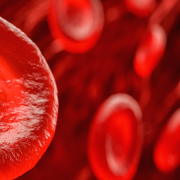Test trialled to improve treatment for bowel cancer patients
Post-operative cancer patients may avoid side effects from unnecessary chemotherapy thanks to a genomic test
Bowel cancer patients are being tested for cancer signatures that will show if their cancer remains after surgery. For those participating in a medical trial, led by the Royal Marsden NHS Foundation Trust, a simple test will detect whether tumour DNA remains in their bloodstream. The presence or absence of this circulating DNA will inform whether they will need chemotherapy or not.
Using cell-free DNA for diagnosis
When cells die and break down, they can shed fragments of their DNA into the bloodstream. This DNA, known as circulating cell-free DNA, can be tested for as a marker of disease. For example, non-invasive prenatal diagnosis tests look at the cell-free fetal DNA present in the mother’s bloodstream in order to answer questions about the fetus’s genome before they’re born.
The same principle can be applied to cancer.
When a person has cancer, DNA from tumour cells can find its way into the bloodstream. This is known as circulating tumour DNA. This ‘ctDNA’ can contain specific cancer markers, such as a variants in the DNA sequence, that can act as ‘signatures’. The signatures help clinicians to diagnose and treat cancer and now, as this study shows, may help predict which patients’ cancers are likely to reoccur.
One size doesn’t fit all
For patients with stage two or stage three colorectal cancer, the current standard-of-care treatment is surgery to remove the tumour and affected section of bowel, followed by chemotherapy. Many patients are fully cured following surgery, but some have a tiny amount of cancer cells left. So all patients are offered chemotherapy to destroy any remaining cells which, if left untreated, would cause the cancer to return.
Chemotherapy isn’t risk-free, however; some patients may experience serious side effects including increased risk of infection, chest pain and temporary or permanent infertility.
“Half of patients with stage 3 bowel cancer are cured by surgery alone, so we are over-treating a large proportion of patients,” said the Royal Marsden’s consultant oncologist Dr Naureen Starling, speaking with the BBC. As such, a test that can inform which patient’s cancer is cured after surgery, and which isn’t, will affect the treatment of thousands of bowel cancer patients every year.
- For clinicians: About colorectal cancer (GeNotes)
How the trial worked
Starting in 2016, the ‘tracking mutations in cell free DNA to predict relapse in early colorectal cancer’ (Tracc) trial tested blood for ctDNA. The trial’s aim was to evaluate whether a ctDNA can predict which patients have residual cancer cells and ultimately if they would need chemotherapy.
Participating patients gave blood samples before surgery and at several points afterwards. These were all screened for ctDNA levels. From the results, researchers could show that patients who had undetectable ctDNA levels 4-8 weeks after surgery were much less likely to have their cancer return within two years.
A new phase of the trial, also led by the Royal Marsden, is now allowing those patients to opt for a less intense form of chemotherapy, meaning less side effects or, in some cases, none at all.
“The results of this trial could help us tailor treatment decisions to benefit patients and reduce the side effects of chemotherapy, which will enable patients to have a better quality of life,” said Royal Marsden’s director of clinical research and the study’s lead researcher, Professor David Cunningham.
- Sign-up for our upcoming webinar: Targeting chemotherapy in paediatric oncology









